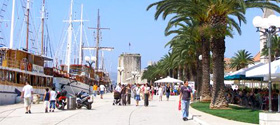
In the 3rd century BC, Tragurion was founded by Greek colonists from the island of Vis, and it developed into a major port until the Roman period. Trogir has a fascinating 2300 years of continuous urban tradition. Its rich culture was created under the influence of old Greeks, Romans, and Venetians. Trogir is under UNESCO protection from 1997. year.
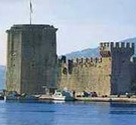
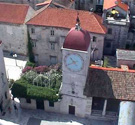
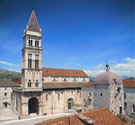
Trogir is the best-preserved Romanesque-Gothic complex not only in the Adriatic, but in all of Central Europe. Trogir's medieval core, surrounded by walls, comprises a preserved castle and tower and a series of dwellings and palaces from the Romanesque, Gothic, Renaissance and Baroque periods. Trogir's grandest building is the church of St. Lawrence, whose main west portal is a masterpiece by Radovan, and the most significant work of the Romanesque-Gothic style in Croatia.
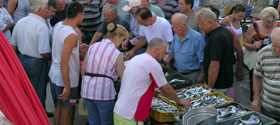
Tourism is the most important economic branch in Trogir region, covering 50% of city's budget with more than 20,000 beds in hotels and private apartments.
There is also a very strong fishing and agriculture tradition among the population in surrounding areas.
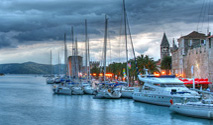
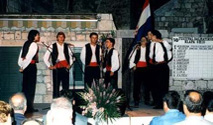
Trogir is a town-museum in the very meaning of the word. Lovers of cultural and historical monuments, art, original architecture and nice alleys are given the opportunity in Trogir to learn about the manifold and complex heritage - from the Romanesque yard to the modern interiors.